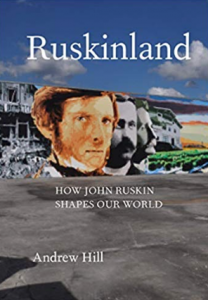
Ruskin, the painter writer and tastemaker in architecture and design


John Ruskin was an intellectual force behind late 19-century aesthetics and the Victorian age’s early environmentalist, with his interest spanning art and geology to social criticism and ecology. His two career halves as art critic and social commentator even though it collided both radiated an intense aestheticism describing jeremiads against mid-19th century capitalism.
In the second half of the 19th century, he sowed the seeds of the modern welfare state, universal state education and healthcare free at the point of delivery. This book is timed to coincide with the 200th anniversary of John Ruskin’s birth and his prophetic pronouncements about the way our modern world would look, live, work and think.
Ruskinland tells eventful life of its hero, interlaced with themes highlighting his interest in nature, art, craft and education.
Like Dickens, he was good at spotting what was wrong in modern life but vague on practical strategies to raise humanity above its misery. Ruskin however, praised gothic architecture but loathed suburban dwellings inspired by his writings, referring them as “ the accursed Frankenstein monsters of … my own making”.
The issues Ruskin struggled were large ones and remain vital today. Henry james, who knew him described his effect on his age as that of a man wandering “ without a compass and a guide – or any light save the fitful flashes of his beautiful genius”.
Ruskinland: How John Ruskin Shapes Our World by Andrew Hill Pallas Athene £19.99, 305 pages.
